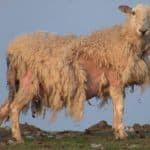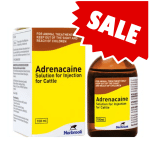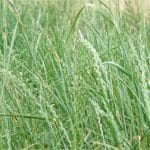Introduction
In UK livestock farming, disbudding and castration are routine but critical procedures that support herd safety, welfare, and management. However, these interventions must be performed with strict adherence to legal standards and animal welfare guidelines. With increasing emphasis on ethical farming, the use of pain relief and stress mitigation tools like Adrenacaine and FerAppease is transforming how our farmers approach these tasks.
1. Legal Framework & Best Practice
Under the Animal Welfare Act 2006 and the Mutilations (Permitted Procedures) (England) Regulations 2007, disbudding and castration must be carried out in ways that minimise pain and distress. UK law mandates the use of local anaesthetic for most procedures beyond the first week of life.
- Disbudding (removal of horn buds) is ideally performed between 2–4 weeks of age using a hot iron under anaesthesia.
- Castration methods vary by species and age, but procedures beyond the first week (rubber ring method) require anaesthetic and often a vet.
Failure to comply can result in prosecution under the Agriculture (Miscellaneous Provisions) Act 1968.
2. Why Disbudding Matters
Disbudding prevents horn growth, reducing injury risk to handlers and other animals. It also improves safety in housing and transport. Compared to dehorning, which involves removing fully formed horns, disbudding is less traumatic and preferred by welfare bodies like the British Veterinary Association (BVA). Here at Severn Edge Farm Vets we can assist you with procedures such as disbudding, assuring you that guidelines and followed and the best result for both farmer and animal is obtained.
3. Castration: Timing & Technique
Castration is used to manage aggression, prevent unwanted breeding, and improve meat quality. Techniques include:
- Rubber ring (within first week)
- Burdizzo clamp (up to 2 months)
- Surgical castration (requires vet and anaesthetic)
The Protection of Animals (Anaesthetics) Act 1954 makes it illegal to perform castration without anaesthesia beyond certain ages. Please get in touch with us on 01270 310010 to discuss how we can assist you with procedures such as castration across the age groups.
4. Adrenacaine: Effective Pain Relief
Adrenacaine is a widely used injectable local anaesthetic containing procaine hydrochloride and adrenaline. It is approved for use in cattle during minor surgical procedures, especially disbudding and castration. Read our recent article HERE for more in-depth discussion on the benefits and uses of Adrenacaine on your farm. As of 10/10/2025 we currently have some short-dated stock available at a discounted price of £7 + VAT, give us a call to place your order.
Benefits:
- Fast-acting and reliable pain relief
- Reduces acute and chronic pain
- Supports legal compliance
- Can be combined with NSAIDs for enhanced analgesia
Veterinary bodies like the BCVA and BVA recommend Adrenacaine as part of routine pain management protocols.
5. FerAppease: Stress Reduction Game-Changer
FerAppease is a synthetic pheromone mimicking the Maternal Bovine Appeasing Substance (MBAS). Applied topically to the muzzle and poll, it calms animals by reducing their perception of threat and stress.
Benefits:
- Reduces cortisol levels during procedures like disbudding and castration
- Improves weight gain, feed intake, and immune response
- Lowers mortality and morbidity rates
- Enhances handler safety and animal cooperation
Studies show FerAppease-treated calves have 20–35 lbs more live weight post-weaning and 83% lower mortality from BRD.
We recently had the pleasure of meeting with Rob from FerAppease to discuss how it can be implemented into UK agriculture practices after it took the US market by storm. If you would like to learn more then click HERE to read our recent article.
6. Welfare & Performance Synergy
Combining Adrenacaine for pain relief and FerAppease for stress mitigation creates a gold standard in livestock care. This approach not only meets legal and ethical standards but also boosts productivity and animal wellbeing. Providing you with long lasting results in the way of increased growth rates due to reduced stress from the procedures..
7. Final Thoughts: A Humane Future
As UK farming evolves, integrating science-backed solutions like Adrenacaine and FerAppease into routine procedures reflects a commitment to humane, high-performance agriculture. Farmers, vets, and stockkeepers who adopt these practices are not only protecting animals—they’re investing in the future of sustainable farming.
If you would like to discuss implementing either of the above products into your farm and would like to chat with one of our vets please give us a call on 01270 310010 or pop into practice.





